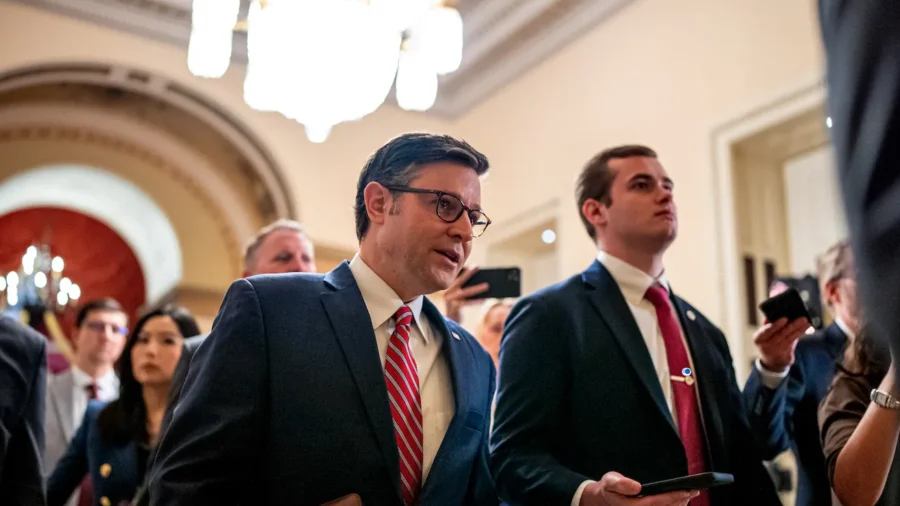House leaders have been forced back to the drawing board after U.S. Representatives voted against the speaker’s continuing resolution bill that would have funded the federal government after the Oct. 1 deadline.
Speaker Mike Johnson (R-La.) presented HR 9494 to the floor for a vote despite opposition from the Democratic leadership and a faction of his own party.
The Democrats were joined by 14 Republicans voting against the spending plan, including Rep. Matt Gaetz (R-Fla.), Rep. Lauren Boebert (R-Colo.), and Rep. Nancy Mace (R-S.C.).
Continuing resolutions are temporary funding measures to enable the federal government to continue operating even when the legislative and executive branches haven’t yet agreed on the next annual budget.
The bill, intended for funding until March 28 next year, included a measure that would prohibit states from registering people to vote who don’t show proof of U.S. citizenship.
HR 9494 lost 220-202. Rep. Marjorie Taylor Greene (R-Ga.) and Rep. Thomas Massie (R-Ky.) both voted present.
“I think it’s unfortunate that the Republican majority is a dysfunctional majority that doesn’t convince its own members that we have to have a sane method of funding the government. And that every so often, people have to face this looming government shutdown, which disrupts not just the economy, but the everyday life of American families,” Rep. Adriano Espaillat (D-N.Y.) told NTD News reporter Luis Martinez outside the Capitol.
The failure of the continuing resolution bill will pose a challenge to Congress and President Joe Biden, as the clock is ticking for the elected representatives to agree on a compromise to fund the government. Lawmakers are scheduled to leave Washington next Friday and won’t return until after the Nov. 5 election.
Johnson supporters, like Rep. Russ Fulcher (R-Idaho), blamed Democrats in the House for blocking the funding, while Democrats blamed factions of Johnson’s own party.
“Today, I voted to safeguard the integrity of our elections and prevent a massive end-of-year spending spree—something Democrats would rather shut down the government over than support,” Fulcher told NTD News.
The next steps remain unclear for Johnson, but it’s expected he will be moving quickly to meet the Oct 1. deadline. A “clean” continuing resolution is one option, which would mean that no other provisions are attached.
While a clean continuing resolution could be passed to just get funding approved as soon as possible, the speaker runs the risk of his own party viewing him as caving to pressure during the negotiations process. Other Republicans will also want some kind of legislative victory that they can tout in their districts ahead of Nov. 5 as they return to campaigning in two weeks.
If Wednesday’s attached measure, forcing states to verify proof of citizenship in order to register people to vote, somehow receives enough support in the House in the days to come, it appears destined to fail in the Senate because Democrats, who are generally opposed, possess the tie breaking vote, with Vice President Kamala Harris as President of the Senate.

